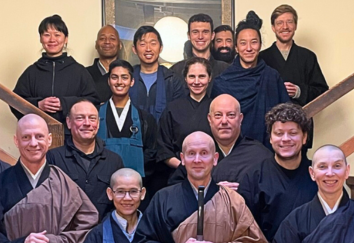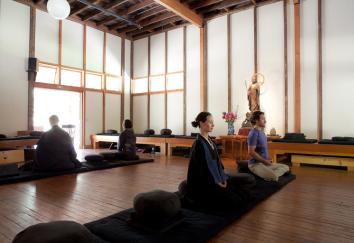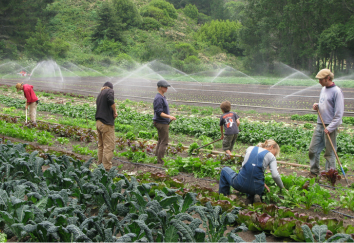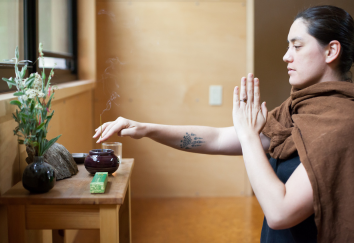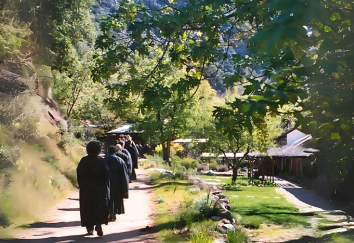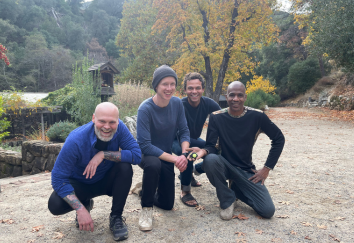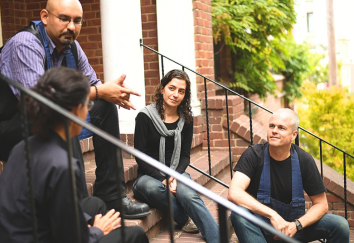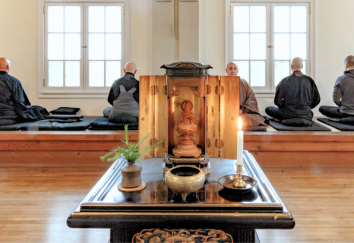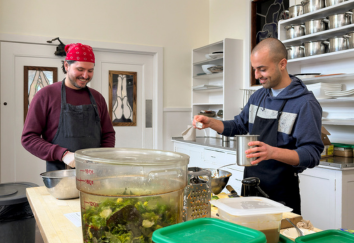Founded in 1962, San Francisco Zen Center is home to a diverse population of students, visitors, lay people, priests, monks, and teachers, all guided by Suzuki Roshi’s style of warm-hand-and-heart to warm-hand-and-heart. San Francisco Zen Center has developed a number of long- and short-term residential programs that allow new and experienced students to immerse themselves in a contemplative life.
Each of our three Northern California locations offers an opportunity to experience the practice of Soto Zen Buddhism, unique to its setting: a vibrant urban community in San Francisco, a beautiful rural farm and garden in Marin County, and a secluded mountain retreat in the Ventana Wilderness.
Life at all three temples includes a daily meditation schedule, mindful work, Dharma talks and classes, one-on-one Dharma discussions with teachers, and living in community with fellow students. Stays can be as short as two weeks, as well as longer commitments such as a practice period (approximately three months), a two-year apprenticeship, or even residency.
Come live the temple life!
Green Gulch Farm (Green Dragon Temple/Soryu-ji) is located in a beautiful, rural valley adjoining Muir Beach in Marin County, CA. It is a working organic farm as well as a Zen training temple. Along with working on the farm/garden or in the kitchen or guest house, Green Gulch offers training in Soto Zen and year-long apprenticeships in Land Stewardship and other programs.
Tassajara Zen Mountain Center (Zenshinji/Zen Heart-Mind Temple) is nestled in a mountain valley located in a remote part of California’s Ventana Wilderness, inland from the Big Sur coast. In the fall and winter, it is a cloistered monastic Zen temple. In the summer, it opens to guests as a retreat center, while students engage in work practice to care for each other, the guests, the hot springs, and the beautiful gardens.
City Center (Beginner’s Mind Temple/Hosshin-ji) was established in 1969 and was home to SFZC founder Shunryu Suzuki Roshi until his death in 1971. City Center is located in a historic Julia Morgan building (built in 1922) in the Hayes Valley/Lower Haight neighborhood in central San Francisco. Here students experience how classic Zen training is shaped and informed by a lively urban environment.
